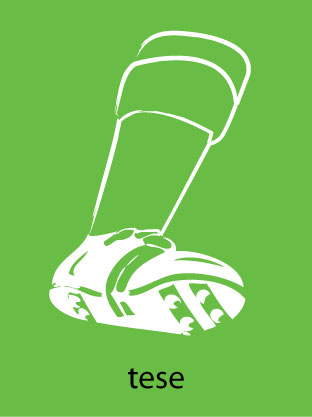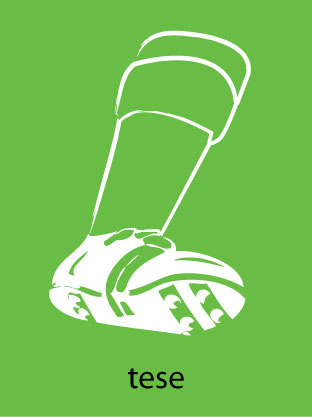INTRODUÇÃO: O futebol feminino, nos últimos cinco anos, passa por um processo de crescimento e desenvolvimento, principalmente no âmbito nacional. Os estudos sobre a categoria feminina precisam ser realizados para proporcionar informações especificas que serão importantes para a seleção de talento esportivo, prescrição do treinamento e melhora do nível esportivo. OBJETIVO: A presente tese de doutorado tem por objetivo analisar o estado da arte da produção científica, brasileira e internacional, sobre futebol feminino no último decênio e verificar o processo de seleção de talentos no futebol feminino brasileiro. MÉTODOS: Foi realizada uma revisão sistemática sobre a produção científica existente nas principais bases de dados sobre futebol feminino para identificar as lacunas do conhecimento científico na área e um estudo experimental de corte transversal para verificar o efeito da idade relativa no processo seletivo de jogadoras de futebol através das análises das seleções brasileiras sub-20 e profissionais que disputaram os campeonatos mundiais das categorias. RESULTADOS: com base nos resultados encontrados na revisão sistemática, sobre a produção científica nacional e internacional, percebe-se que há uma quantidade grande de artigos sobre treinamento esportivo e fisiologia do exercício e que as lacunas do conhecimento existentes nessa categoria esportiva estão relacionadas com tecnologia, principalmente com controle de cargas, interna e externa, de treinamento, aspectos sociais/psicológicos e lesão no esporte. Com relação ao efeito da idade relativa no processo de seleção de talentos, no grupo da categoria sub-20 a distribuição percentual das atletas, por quartis de nascimento, foi de 31.82% no primeiro quartil; 22.73% no segundo quartil; 13.64% no terceiro quartil e 31.82% no quarto quartil. No grupo sub-20 não houve diferença significativa entre os quartis (p= 0.783). Na categoria profissional a distribuição das atletas apresentou valores percentuais de 18.18% no primeiro quartil; 31.82% no segundo quartil; 13.64% no terceiro quartil e 36.36% no quarto quartil e não houve diferença significativa (p=0.671). Ao comparar as duas categorias foi possível verificar que não havia diferença significativa entre elas (p= 0.748). CONCLUSÃO: Conclui-se que a produção de estudos científicos sobre o futebol feminino deve-se basear no preenchimento das lacunas de conhecimento existentes. Além disso, não há um efeito da idade relativa nas seleções brasileiras de futebol feminino participantes das copas do mundo, fato que poderá ser alterado no futuro em virtude do desenvolvimento do esporte e aparição de mais praticantes

Dissertação
Gestão da informação no futebol feminino brasileiro e internacional e processo de seleção de talento esportivo
2021
Instituto de Educação Física e Desportos, Universidade do Estado do Rio de Janeiro
Rodolfo de Alkmim Moreira, Gustavo Casimiro Lopes, Paulo Moreira Silva Dantas, Luciano Alonso Valente dos Santos
Dissertação
Doutorado em Ciências do Exercício e do Esporte
63
Arquivos
Resumo
Abstract
INTRODUCTION: Female’s soccer, in the last five years, has undergoing a process of growth and development, especially at the brazilian level. Studies on the female’s category need to be conducted to provide specific information that will be important for the selection of sports talent, training prescription and improvement of the sports level. OBJECTIVE: This doctoral thesis aims to analyze the state of the art of scientific, brazilian and international production on female’s soccer in the last decade and to verify the process of talent selection in brazilian female’s soccer scenario. METHODS: A systematic review of the existing scientific production in the main databases on women’s soccer was carried out to identify the gaps in scientific knowledge in the area and a cross-sectional experimental study to verify the effect of relative age on the selection process of soccer players through the analysis of Brazilian Female under-20 and professionals Nationals Teams who competed in the World Cup of both categories. RESULTS: based on the results found in the systematic review on national and international scientific production, it is perceived that there are many articles on sports training and exercise physiology and that the gaps in knowledge existing in this sports category are related to technology, especially internal and external load control, social/psychological aspects of sport and injuries. Regarding the effect of relative age on the talent selection process, in the under-20 category group the percentage distribution of athletes by birth quartiles was 31.82% in the first quartile; 22.73% in the second quartile; 13.64% in the third quartile and 31.82% in the fourth quartile. In the under-20 group, there was no significant difference between the quartiles (p= 0.783). In the professional category, the distribution of athletes presented percentage values of 18.18% in the first quartile; 31.82% in the second quartile; 13.64% in the third quartile and 36.36% in the fourth quartile and there was no significant difference (p=0.671). When comparing the two categories it was possible to verify that there was no significant difference between them (p= 0.748). CONCLUSION: It is concluded that the production of scientific studies on women’s soccer should be based on filling the existing knowledge gaps. In addition, there is no effect of relative age on brazilian women’s soccer teams participating in the World Cups, a fact that may be changed in the future due to the development of the sport and the appearance of more practitioners
Referência
SILVA, Ignácio Antônio Seixas da. Gestão da informação no futebol feminino brasileiro e internacional e processo de seleção de talento esportivo. 2021. 63 f. Dissertação (Doutorado em Ciências do Exercício e do Esporte) - Instituto de Educação Física e Desportos, Universidade do Estado do Rio de Janeiro, Rio de Janeiro, 2021.Leituras recomendadas
-

Fintar Fronteiras
Carlos Nolasco -

“O futebol não foi profissional comigo, mas eu fui com ele”
Fernanda Ribeiro Haag -

A voz do narrador de futebol na construção das seleções nacionais como mercadorias não corpóreas no Brasil e na Argentina
Martín Ernesto Russo -

O exercício da tutela arbitral pela Câmara Nacional de Resolução de Disputas no futebol associado
Rafael Terreiro Fachada


